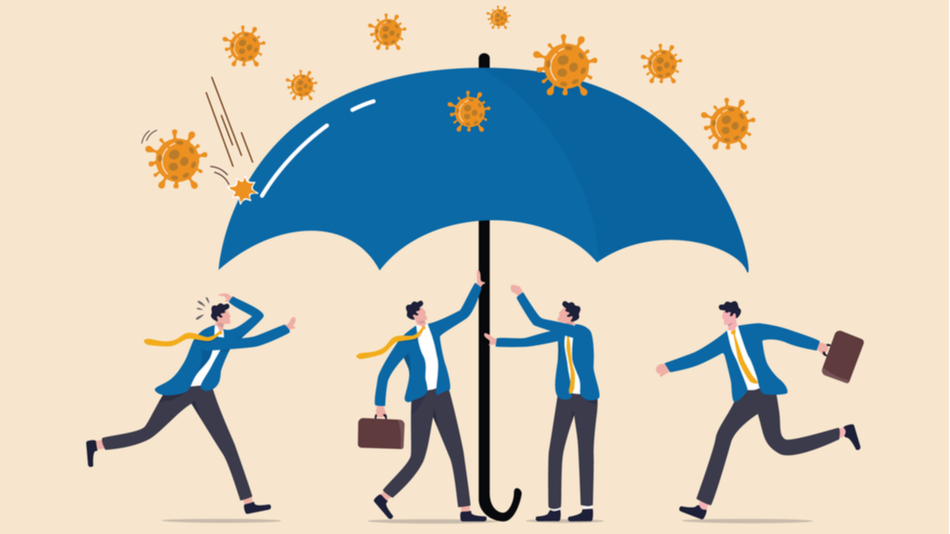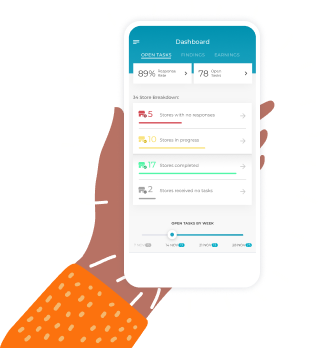In a recent op-ed for CNN, Marcelo Gleiser, 2019 Templeton Prize Laureate and Natural Philosopher at Dartmouth College declared that Covid-19 will change us as a species.
Most of us are facing the first major global crisis in our lifetime. Likening the war against the virus to the world wars our parents and grandparents witnessed, Gleiser believes that the pandemic will force us to respond as one, mobilizing together to fight the common enemy.
Goodbye tribalism. Hello collective human hive.
Whether you agree with Gleiser’s prediction or not, one thing is clear: you can’t go this alone. Whether it’s tag-teaming childcare with your spouse while working remote, having a virtual happy hour with a college buddy for your mental health, or waiting for a grocery delivery to pull up, you need a support system right now to weather this storm.
And retailer after retailer is realizing as much, partnering with networks of like-minded organizations to offer more services than ever and better support their communities.
So, let’s take a moment to highlight some of the incredible partnerships born of the health crisis. As you read the article, why not consider who in your own network can help you give back to your team, your customers, and your community?
Partners Across Industries
One way the retail industry has coped with upheaval in labor as a result of the pandemic is by enacting strategic partnerships with businesses in other industries. As you know, the story goes something like this. Once upon a time, i.e. back in mid-March, consumers began to realize that stores were running low on household staples and sanitizing products. An uptick in panic buying meant that grocers and other essential retailers needed more hands on deck. Let the grocery hiring frenzy ensue.
Meanwhile, with their doors closed or little demand to speak of, restaurants, movie theaters, hotels, and non-essential retailers were faced with the tough decision of furloughing or laying off workers. The businesses affected realized that they had a perfect opportunity to partner together. On one hand, grocers could count on hiring responsible employees already trained in service. On the other, businesses that had to let employees go could give them a leg up in obtaining new work and give themselves a nice pat on the back.
The first businesses to make a staff-sharing agreement official were Aldi’s German legs, Aldi Sud and Aldi Nord, with McDonald’s Germany. Under the agreement, which took effect in late March, McDonalds referred affected employees to Aldi supermarkets to help on a temporary basis until they could return to McDonalds. With stay-at-home guidelines already lifting in Germany, the agreement may end up being shorter lived than predicted.
Shortly after the Aldi x McDonalds deal was announced, Albertsons followed, partnering with 17 companies to offer part-time employment opportunities and dedicated application sites to otherwise furloughed staff. With 30,000 new associates to hire in their supermarkets, Albertson’s saw a unique opportunity to obtain experienced workers ready to hit the ground running.
The beauty of these partnerships is that they’re perfectly suited to the demand fluctuations caused by the COVID-19 outbreak. Once their old employers are back up-and-running, grocers may not require the same headcount they did at the pandemic’s peak. All sides should be well positioned to return to business as usual from a labor perspective.
Partnering with Peers
Some retailers have found ways to partner with other, non-competing retailers to give back to the community and advance their business. We have two very different examples, courtesy of a handful of department, specialty, and grocery retailers.
On one hand, you have the partnership between DSW Designer Shoe Warehouse and midwestern supermarket chain Hy-Vee. Although DSW’s partnership with Hy-Vee may have been cooking since before the pandemic, the partners are now launching at it a particularly opportune time. Like so many other apparel sellers, the closure of Designer Brands’ DSW stores in mid-March posed an imminent threat to sales. By partnering with an essential retailer, DSW may just be able to rise above the challenges.
In light of the pandemic, the partnership will begin digitally, with DSW goods offered on Hy-Vee’s website. Later, however, the two will launch buy online, pick up in-store (BOPIS) services so that Hy-Vee shoppers can get instant access to family footwear at over 130 Hy-Vee locations.
Another interesting example of peer-to-peer partnership is that of Neiman Marcus and JOANN Fabric & Crafts. Before Neiman Marcus confirmed their long-anticipated, post-COVID-19 bankruptcy filing, they announced a plan to manufacture personal protective equipment (PPE) for frontline healthcare workers. The team at JOANN not only provided fabric and materials to craft masks, gowns, and scrubs, but also secured patterns and templates for their construction. Meanwhile, Neiman would offer up their alterations facilities and specialists to safely produce the goods.
Another interesting example of peer-to-peer partnership is that of DSW Designer Shoe Warehouse and midwestern supermarket chain Hy-Vee. Although DSW’s partnership with Hy-Vee may have been cooking since before the pandemic, the partners are now launching at it a particularly opportune time. Like so many other apparel sellers, the closure of Designer Brands’ DSW stores in mid-March posed an imminent threat to sales. By partnering with an essential retailer, DSW may just be able to rise above the challenges.
In light of the pandemic, the partnership will begin digitally, with DSW goods offered on Hy-Vee’s website. Later, however, the two will launch buy online, pick up in-store (BOPIS) services so that Hy-Vee shoppers can get instant access to family footwear at over 130 Hy-Vee locations.
Both the Neiman Marcus x JOANN partnership and the DSW x Hy-Vee partnership show what can happen when leaders have readily accessible professional networks. Given how common it is for retail industry professionals bounce back and forth between brands, it’s no surprise that their networks provide a wealth of opportunity for those willing to think outside the box.
Partnering with Competitors
For some bold retailers, the pandemic calls for putting competition aside and teaming up for the larger good. The long-held rivalry between beloved Pennsylvania-based convenience retailers Sheetz and Wawa is no secret. In fact, Business Insider, Thrillist, and Food & Wine have all covered the debate as to which chain reigns supreme.
But the health crisis has prompted the mortal enemies to put their retail rivalry aside to provide food assistance to Pennsylvania communities in need. The campaign, “Working Together to Fight Hunger” unites the retailers in donating both lunches and funds to food banks in their region. As part of the agreement, employees of both retailers are delivering donations to provide relief to communities in-need, including quarantined senior citizens.’’
Of course, Sheetz and Wawa aren’t the only retailers partnering with relief organizations. Publix is paying farmers to redirect, rather than discard, their surplus milk and produce to Feeding America-member food banks. But what’s super-savvy about the Sheetz and Wawa partnership is the added publicity for both brands that results from letting go of long-held bad blood between two local favorites.
Leveling Up with a Retail Partner
Sure, as rock goddess Stevie Nicks once said, you can go your own way. But in times like these, why would you?
The beauty a retail career is that it teaches you resilience, teamwork, and how to think on your feet. It also gives you a network of professional contacts who can hit the ground running with you and have some fun doing it.
The partnerships we highlighted in this article show how powerful connections can be, if you can think strategically and act decisively. If you’re a retail leader who hasn’t yet tapped into your professional network, be it in the form of an unconventional partnership, friendly advice, or just a listening ear, there’s no better time than now.



